Exclusive Interview with Robbie Thompson: A Supernatural Memoir from B. G.’s Canteen – Part 3
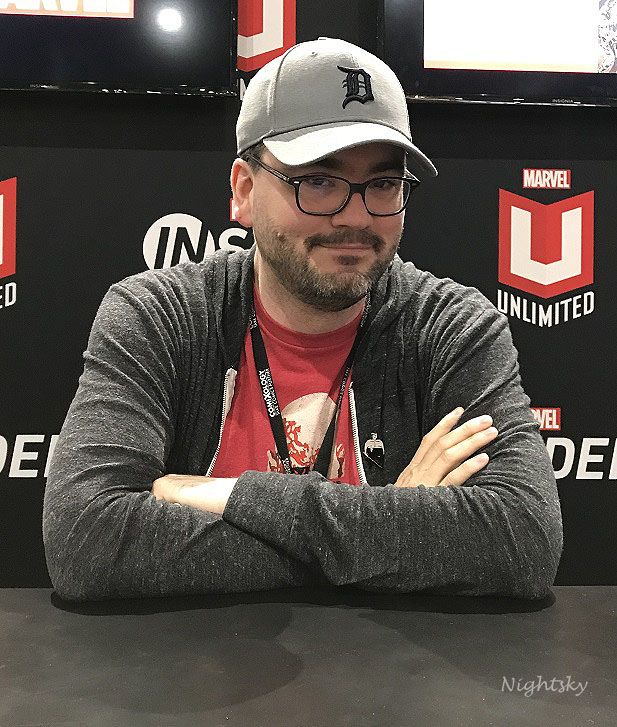
Robbie Thompson is widely considered by Supernatural fans to be one of its most creative, talented writers. From 2011 to 2016 (season 7 through 11), Robbie wrote 18 episodes, including the series’ milestone 200th episode (“Fan Fiction” 10.05), and co-produced a total of 94 hours of the series. His beloved characters and imaginative plots forever changed the course of Supernatural‘s storyline. After penning one of Supernatural’s most pivotal episodes (“Don’t Call Me Shurley” 11.20), Robbie left Supernatural to join the Marvel universe as a writer of science fiction comic books.
Over a span of four months in 2019, Robbie talked with me about his time with Supernatural. We began our conversation at his Marvel signing table during the March Chicago Comic and Entertainment Expo (C2E2), and connected again in July at San Diego’s Comic-Con to finish our interview. When I finally turned off my recorder, Robbie had gifted us with nearly two hours of insights about Supernatural‘s writers’ room, the myriad of creative decisions that went into his many outstanding episodes, and the twists and turns of his career. Our conversation was casual, fluid and candid, as Robbie shared his thoughts between signing collectibles and posing for fan photos.
For reference, the following are Robbie’s Supernatural episodes, roughly categorized as either standalone (also referred to as “monster of the week”) or myth arc stories:
|
Standalone Episodes |
Myth Arc Episodes |
|
7.12 “Time After Time” |
7.06 “Slash Fiction” |
|
8.04 “Bitten” |
7.20 “The Girl with the Dungeons and Dragons Tattoo” |
|
8.11 “LARP and the Real Girl” |
8.17 “Goodbye Stranger” |
|
8.20 “Pac-Man Fever” |
9.11 “First Born” |
|
9.04 “Slumber Party” |
9.18 “Meta Fiction” |
|
10.05 “Fan Fiction” |
10.18 “Book of the Damned” |
|
10.11 “No Place Like Home” |
10.20 “Angel Heart” |
|
11.04 “Baby” |
11.11 “Into the Mystic” |
|
11.16 “Safe House” |
11.20 “Don’t Call Me Shurley” |
I hope you enjoy this peek inside the brilliant writing mind of Robbie Thompson, and the inner workings of creating Supernatural‘s magic.
A Supernatural Memoir from B. G.’s Canteen – Part 3
Friday, July 19, 2019
Part 1 of “A Supernatural Memoir from B.G.’s Canteen” begins with a discussion of Robbie’s experiences writing the milestone 200th episode and the writing process behind Supernatural‘s scripts. We then talked about the first two of Robbie’s signature episodic elements, effectively using “Time Travel” and “Living Spaces” to tell his stories.
Part 2 continues the exploration of Robbie’s episodes by focusing on three more of his stories’ components: “Incorporating Classic Stories,” experimenting with “Non-Traditional Formats” and “Music” as a tool to create mood. We concluded our time in Chicago discussing why Robbie left Supernatural.
This conversation, Part 3, picks up where we left off, with Robbie giving the behind-the-scenes details about the last two of his episodes’ hallmarks: introducing distinctive “Characters” and “Reviving Plotlines.”
“Details are what make a story great.”
Robbie’s Storytelling Elements
(aka Robbie’s Writing Master Class Continued*)
Characters
Nightsky: We talked a lot about Charlie but you created several fabulous characters.
Robbie: I try.
Nightsky: For each character I’m going to name, which came first, the character or the actor? Were you specifically asked to create a new character, or did they just flow from the story? Let’s start with Frank Devereaux.
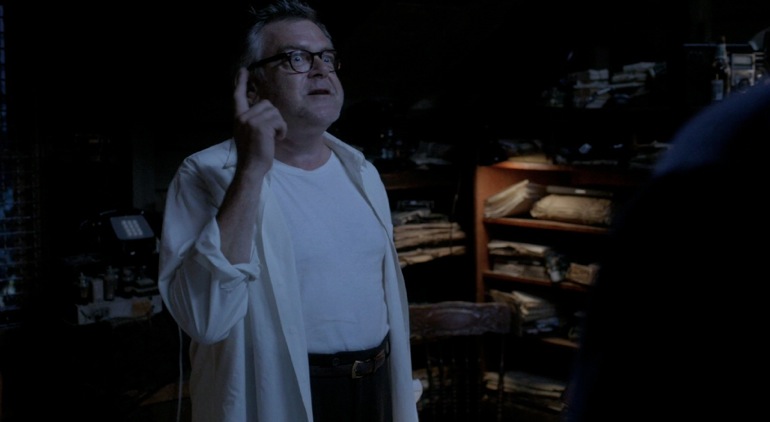
Robbie: So, Frank Devereaux was a character that Sera [Gamble], Bob [Singer] and [Eric] Kripke actually had in mind. They were talking early on in that season that at some point the boys were going to get cloned by the leviathans, and that they would have to go off the radar even further than they normally were. We started talking about a character named… they didn’t have a name actually at the time, but he was based on and inspired by a character that Gene Hackman played in one of my favorite movies, The Conversation. He later kinda sorta pseudo played a similar part in the movie Enemy of the State, twenty or thirty years later with Will Smith. He was sort of this paranoid guy who was a surveillance expert. He was somebody that could maybe help them [Sam and Dean] go even deeper underneath [the radar].
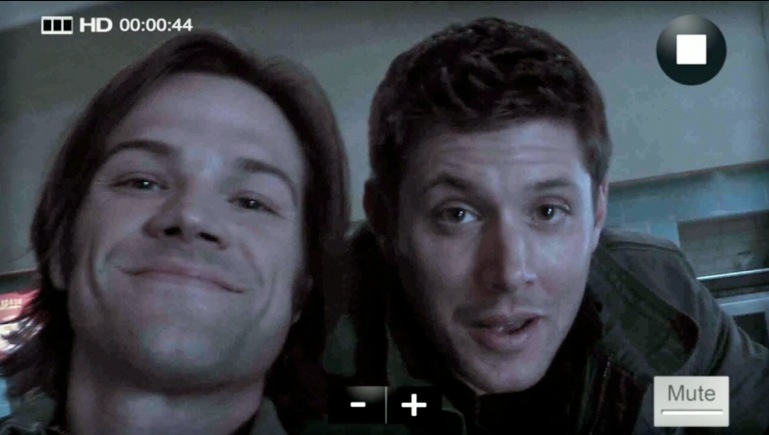
There used to be a board in the Writers’ Room that had all these titles that referred to potential episodes, “someday we’ll do this” – like a “Memento” style episode, or whatever. There was one called “Clone Wars” where they wanted Sam and Dean to fight Sam and Dean, and the leviathans provided an opportunity to organically bring that idea to the series. I pitched an episode, which actually became a later episode, which I didn’t write, [but instead] I got assigned the “Clone Wars” episode, because at that stage in the season, they knew we wanted to do that, and knew that we were going to introduce Frank Devereaux.
I came up with the name. “Frank” was my father’s name, and “Devereaux” was a reference to a hockey player for the Detroit Red Wings, named Boyd Devereaux. I just thought he had a great name so I smushed the two together. Then we cast an amazing actor…
Nightsky: Kevin McNally.
Robbie: Kevin McNally! He was amazing; he was so good. I think it’s on the blooper reel – you can see he’s messing with the boys when he’s doing the photographs. That was all him, just improvising and just f**king with them. He was terrific. Unfortunately, we wanted to bring him back, and he was originally going to be, essentially Charlie, in that episode [7.16 “The Girl with the Dungeons and Dragons Tattoo” that introduced Charlie] but he booked a play in Ireland or the UK (I can’t remember where) and we just didn’t have him. It wasn’t that he didn’t want to come back. So we ended up doing something later that season [in 7.10 “Out with the Old”] where it was kind of implied that he was killed. Then that’s where the earliest inspiration for Charlie was born – we needed someone who could occupy that space in the story, and later we needed a character for practical reasons since Jared and Gen were about to have their first kid. We were trying to build an episode that maybe could have a little less of the boys to get them some time off. Anyways, in that case, it was a character that was brought into the room by the showrunners before we had even started talking about the season, and then it just fell to me to help bring that character to life.
Nightsky: Then Kevin was cast.
Robbie: Kevin was cast afterwards. That was another great piece of…Supernatural has wonderful casting departments in both LA and in Vancouver. They found him and he was perfect.
Nightsky: They do! Omundson, Cain, is another one!
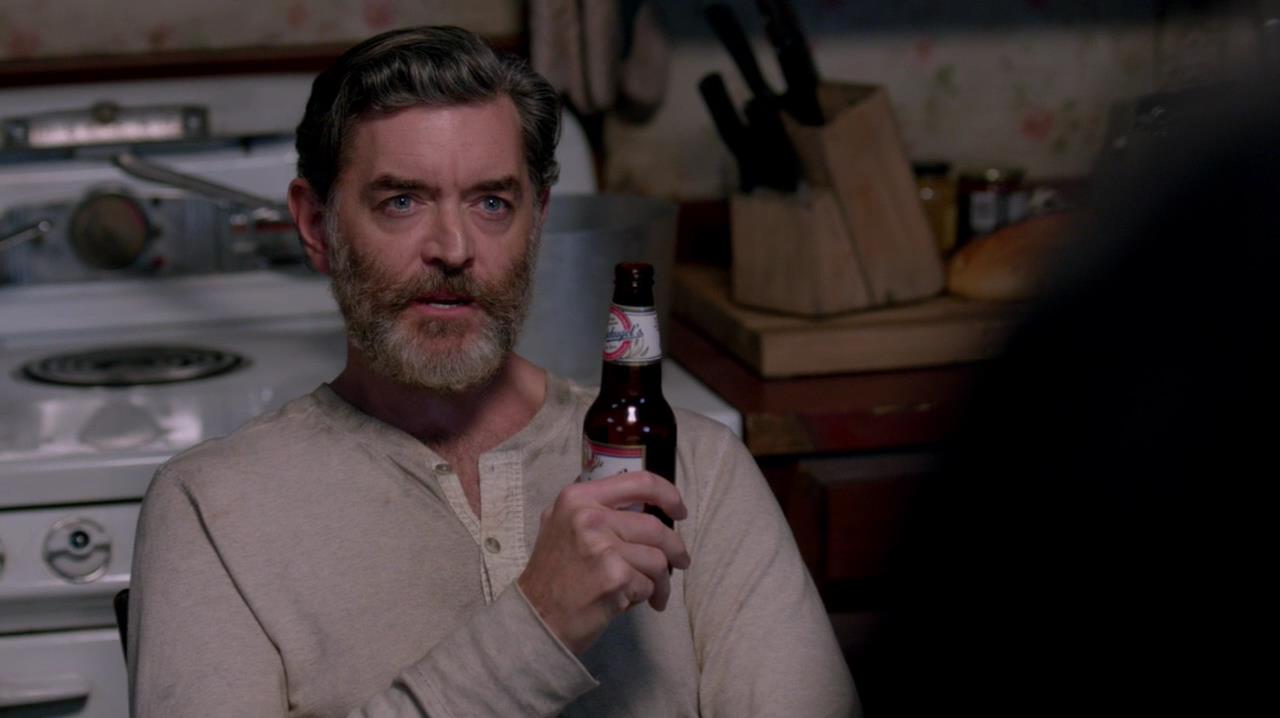
Robbie: We were talking about what eventually became the First Blade. We knew where Dean was going in the second half of the season, per Jeremy [Carver] and Bob. I can’t remember…. We were in a room, it was a smaller room, I think it was Jeremy, Bob, Andrew [Dabb] and me, and they had started talking about Cain and Abel. It was a very obvious parallel for the boys. Then we started talking more about Cain, and then I thought, “Well there’s different iterations of Cain in the Bible, and also different murder weapons. It’s been everything from a rock to a….” I found one that’s not actually, or I don’t know if it’s canonical, but it was like the jawbone of an animal. I just thought that was so cool as a weapon. I think I shared this with you before: I was like, “Yeah, it’s like the first blade.” It was the first thing that came to my mind, not what it was supposed to be called. So I drew a little shi*ty picture of it on my dry erase board, which I posted online years ago. It’s awful, but we all thought that was a cool idea. But in my mind, it was like first draft theater; we’ll call it something cooler later. But now there’s First Blade tattoos and props, and all that other stuff!
As far as Tim Omundson goes, that was a suggestion that I’d had. I worked with Timmy on Jericho and Human Target. Tim is just an incredible actor and he’s one of those actors that has such range.Originally, folks had just seen his comedy reel, so it’s just Psych and some of his other sitcom work. Based on that, you’d think he’s (I mean, he is) a funny, goofy guy, and you may not realize that he can bring this darker edge to it.
Nightsky: Superbly skilled.
Robbie: Yeah. Then I showed them a bunch of stuff from Deadwood and a part that I got to co-write on Human Target, where he played this dark and mysterious character. Honestly, I just wanted to work with Tim again. I think he’s such a brilliant actor and he’s such a lovely guy and such a lovely, lovely person to work with. So I pitched him to the bosses. They looked at both reels and were excited and interested, [and said] “Yeah, if he’s available.” Fortunately, he had – I can’t remember if they were still doing Psych then or not – but he had a window that worked out for us. So, then we cast him. I wrote that script [“First Born” 9.11] in Japan actually. I was on vacation. I wrote my final draft of it on the plane ride back.
Nightsky: The 30,000-foot inspiration!
Robbie: Yeah. I just remember that because I was listening to Arcade Fire’s “Reflektor” on repeat, and writing Cain for the first time. I reached out to Tim and we had lunch to hang out. Tim is amazing because he can ask the most detailed questions about the character but he’s also not afraid to get surface as well, in a weird way, because we would spend like an hour talking about what facial hair he should have and…and…hair!
Nightsky: Ha! {imagining the long conversation that gave us Cain’s magnificently sculpted beard and curly hair!}
Robbie: Everything we’ve ever worked on, he has such great range! I can’t wait to work with him again. We’re, I think, three shows in now, and I hope whatever I work on next, I can work on with him. He’s brilliant.
Nightsky: Absolutely. Brilliant.
Robbie: So, in that case, we created the character as a group, and then obviously Tim came in and co-created the character with performance. A lot of the questions he asked filtered into the script, i.e. the dialogue that he and I had. Then he came back and got to play him one more time in another really terrific episode.
Nightsky: {agreeing whole heartedly} “Executioner’s Song” (10.14).
Robbie: So yeah. I was thrilled, I was thrilled. I knew that the audience would really respond to him. It’s been fun over the years seeing how the audience embraces certain actors.
Nightsky: I was shocked when I went through his episodes because he was so iconic, the character was so strong—
Robbie: Yeah.
Nightsky: He was only in “First Born” and “Executioner”! I was like, “Wait a minute, I must be missing episodes! He had to have been in more than that!”
Robbie: Yeah. Well, we talked about that because when you start throwing around a name like “Cain,” that’s a very… a lot of people have a pre-awareness of that. They have strong feelings on it, either from religion or—
Nightsky: Preconceptions.
Robbie: Yeah, so we needed someone that could come in and really play the history, and like right away, so that you got that this is a person of weight that had been around for centuries, millennia, and had, in the case of the first season that he was on, a little bit of a parallel trajectory with Dean. It was really great on the dailies because most of, I think almost entirely all of, his stuff was with Jensen. The two of them and Mark Sheppard – they just had this instant chemistry. You can always tell when everyone’s on their A-game, you know? They really start to sort of elevate. That was definitely the case on that episode. It was really, really cool to watch Jensen and Timmy really, really go at it. And Mark as well. Mark is really funny in that episode. He actually came up with a line on the day that we needed, it was like, “You’re good, but I’m Crowley.” That was all Mark. So, yeah, yeah. Timmy’s the best. I love him.
Nightsky: Yes, he is! Next up: Eileen and Shoshannah. Did they specifically want a woman hunter?

Robbie: No, it was just, they were looking for standalone episodes. So what will happen is the showrunners will come around and say, “Hey, we need a myth-arc episode. Please deliver X, Y, and Z, but build an episode around it. Or [do] a standalone.” I had this idea for this character and I had worked with Shoshannah, sort of tangentially, because I was the writer’s assistant and I wrote an episode of Jericho. She wasn’t in the episode that I wrote but she played Bonnie on that show and (this is a spoiler if you haven’t seen Jericho) her character has an untimely death. But Shoshannah was so good in the series, and she was so terrific in that episode. She’s a badass in that episode, with a whole infiltration thing and she’s blowing dudes away with a shotgun, and I was like, “Oh, I wanna see her kick some ass.” I always wanted to work with her again. So I pitched the episode with that character in mind, and then I was like, “I’d love to work with Shoshannah again.” They reached out and she fortunately had a window in her schedule; she was available.
Then I reached out, I think originally through her manager, to say, “Hey, can you put us in touch because I’m not deaf and I want to make sure I’m getting an authentic experience for the performer.” So she and I exchanged a bunch of emails. She’s since gone on to be a showrunner and a writer in her own regard. She’s a really, really brilliant writer and a brilliant actor as well. It was great being able to get her the script early so she could help me fix the parts that didn’t work. Then, on the day, she and Jared had really great chemistry and John Badham, who was the director of that episode (“Into the Mystic” 11.11), they really played around and found a lot of fun moments that weren’t scripted at all. That was just them having fun and building moments.
I think being able to have that early dialogue with, whether it was Shoshannah or Tim, was extremely valuable in helping create the character.
Nightsky: Made it authentic.
Robbie: Yeah.
Nightsky: Let’s talk about Charlie, another character you obviously created. A large part of her identity was the extremely positive portrayal of fans.
Robbie: Sure.

Nightsky: Did you have any awareness that the fandom had been upset about how fans had been portrayed by Becky [Becky Rosen was a character who initially appeared in seasons 5 and 7 of Supernatural]? Were you actually trying to correct that or did Charlie’s positive attributes come from your own opinion of fandom?
Robbie: No. Early on in the development of that character, we knew we wanted—originally, again, it was going to be Frank Devereaux—so we knew we wanted someone to be nerdy, and I kept thinking about people who work in IT. They actually have access to everything. They kind of walk between the raindrops. We needed someone that worked for the leviathans, um, why can’t I think of the guy’s name? Uh, Dick,
Nightsky: Roman.
Robbie: Dick Roman. Geez, you think after all those dick jokes, I would remember! We needed someone that worked at Dick Roman’s company – that would be able to be a whistleblower. Because originally that’s what we talked about. Could you take the character from, like, The Insider, Russell Crowe’s character, and combine it with The Girl with the Dragon Tattoo, but have it be someone that’s a little obviously lighter than both of those characters, and someone that was kind of fun. Having worked in and around IT myself, it attracts, you know, I think, nerds of a feather? So, it seemed like an obvious fit. But I wouldn’t say that it was necessarily conscious. Like, I don’t know that I was that reactive. It was more of what the story needed. And I needed a character that I could flesh out and be in contrast with the boys. But also, I like when some of the nerdier aspects of the boys get kinda coaxed out. So, I was looking more for contrast with the boys than the other character that preceded it. But, I don’t know, it’s like, not all characters are monolithic, so I just wanted her to fit for the story that we had.
Nightsky: This brings up an interesting detail that I’ve been wanting to ask you for a while. In “Slumber Party” (9.04), Dorothy explains that the key to Oz opens a magical door.
Robbie: Right.
Nightsky: Okay. But that key was seen in “Goodbye Stranger”…
Robbie: Yeah
Nightsky: …a whole season earlier (8.17), when Dean was going through old Men of Letter boxes, the key was shown. Was it planted that far ahead that this was going to be the key to Oz?
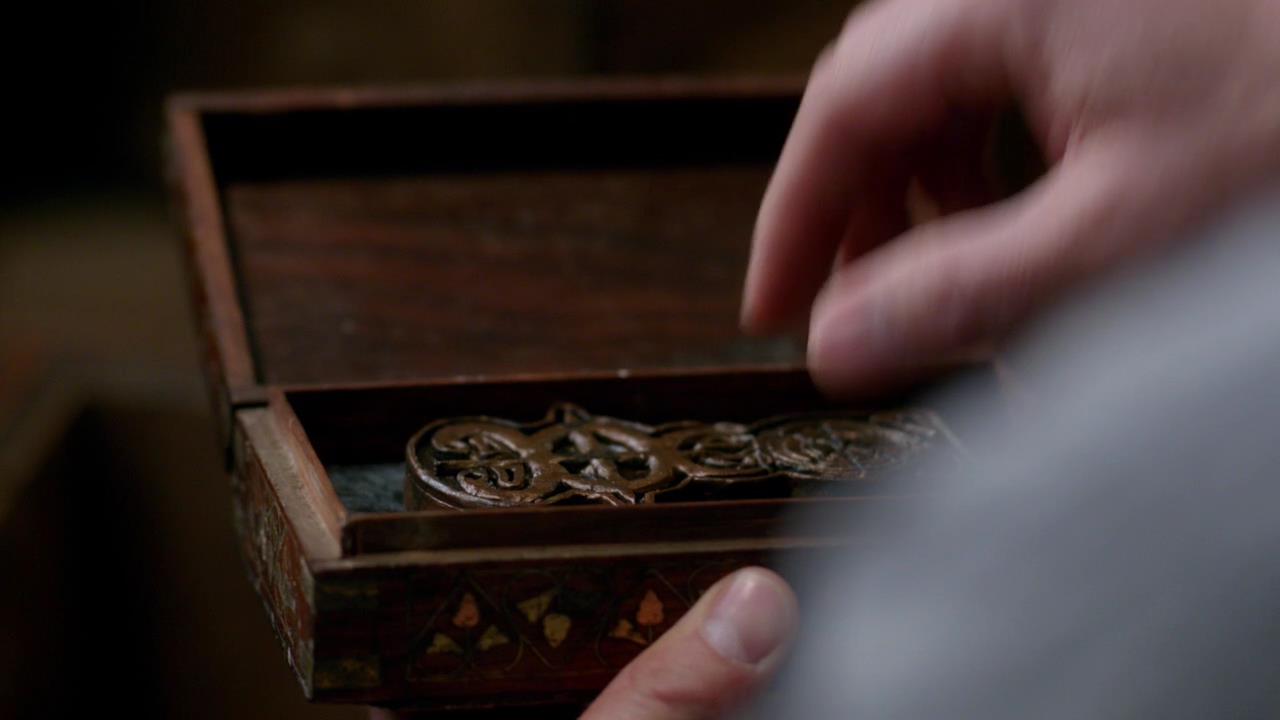
Robbie: When, in “Goodbye Stranger” they’re looking through stuff, I saw that prop, and I was like, “Hey, that’s a cool prop.” It was just in the back of my head, so then later on, when we had the key, it was a retcon. It was not planned.
Nightsky: Nice!
Robbie: But it was one of those things where it’s like, because the prop department on Supernatural is so thorough and brilliant, they’ll give you these opportunities to build on story to make it seem like we planned it. Bob [Singer] always used to say, whenever we would do little things like that, “Almost like we planned it.” Because it’s true. Those little things happen, but it’s a direct result of how dedicated the crew is. You could’ve made anything generic for that pile but they made something so specific and cool that it popped in my mind. I think maybe online a couple people had pointed out, “Oh, what is that thing?” We didn’t intentionally put stuff in there that could be used later on, but that one was one of those ones where it was like, “Ah well, maybe it [Oz] opens up and there’s a key.” So credit to the prop department for that.
Nightsky: Very nice! You said before that you wrote a whole lot of pages about what happened to Charlie when she was in Oz.
Robbie: I did.
Nightsky: Where are those pages?
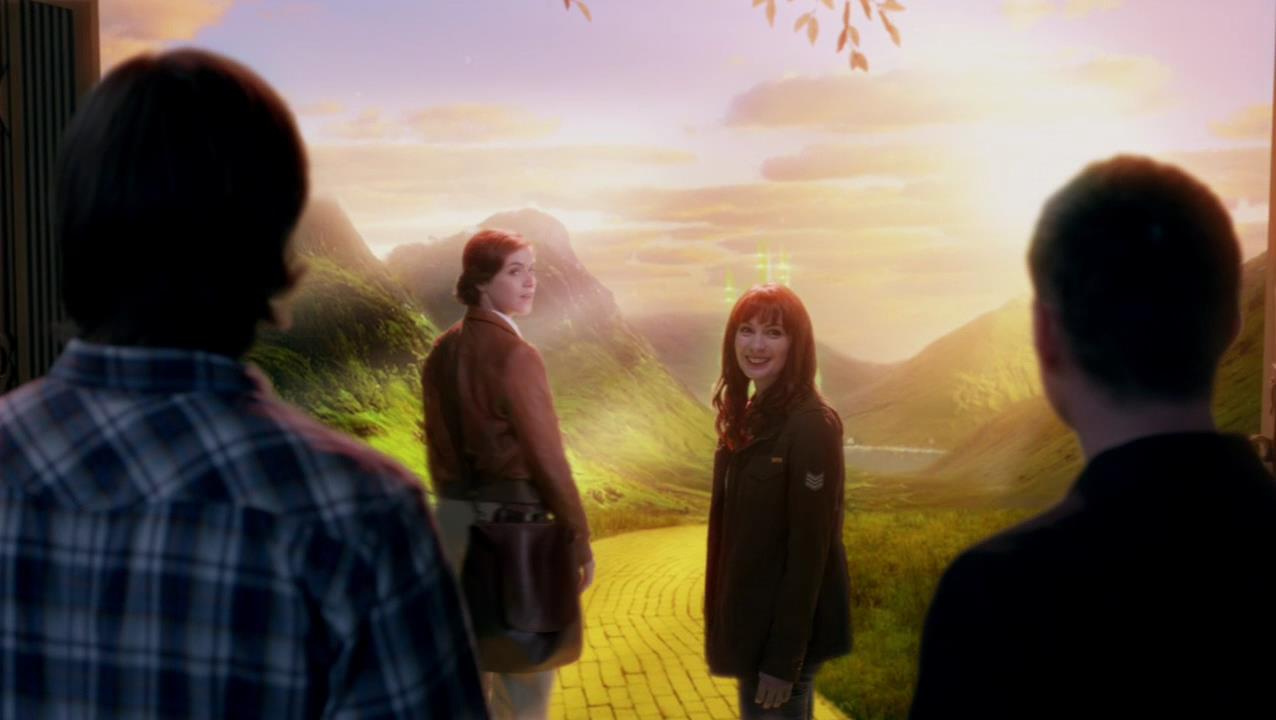
Robbie: Oh, they’re on my computer somewhere. I’d have to… I think I still have them. They may be in a notebook actually. I think then I was using a… I have a couple Supernatural notebooks. It might be in one of my Supernatural notebooks. I just needed to know what she was doing so that if it came up in dialogue, I could kinda throw some… We cut a lot of stuff. Like, she references having a dragon and all this other stuff that we just had to cut out. The episodes I wrote were usually way too long, too much chitter-chatter. But yeah, it’s probably in a notebook somewhere.
Nightsky: Oh. {wondering what it would take to see those notebooks!}
Robbie: I got a ton of notebooks with failed episodes and terrible titles and songs and half of scenes. Still to this day, a song will come on and I’ll be like, “Oh, that’d be a good opener” or “that’d be a good ending of an episode of Supernatural.” I’ll probably be at my death bed and I’ll hear some Bad Company song and I’ll be like, “Ah sh*t, I wanna put that in an episode of Supernatural.”
Nightsky: In your will, leave those notes for publication or something. They can be shared after you go! {Switching to lighter topics} Castiel. You changed his character…
Robbie: I did.
Nightsky: …by giving him all that pop culture knowledge. Just, boom, he’s got everything [in “Meta Fiction” 9.18].
Robbie: Yeah, yeah, yeah.
Nightsky: Was that your idea, and why did you want to retcon Cas? Thank you [by the way]!
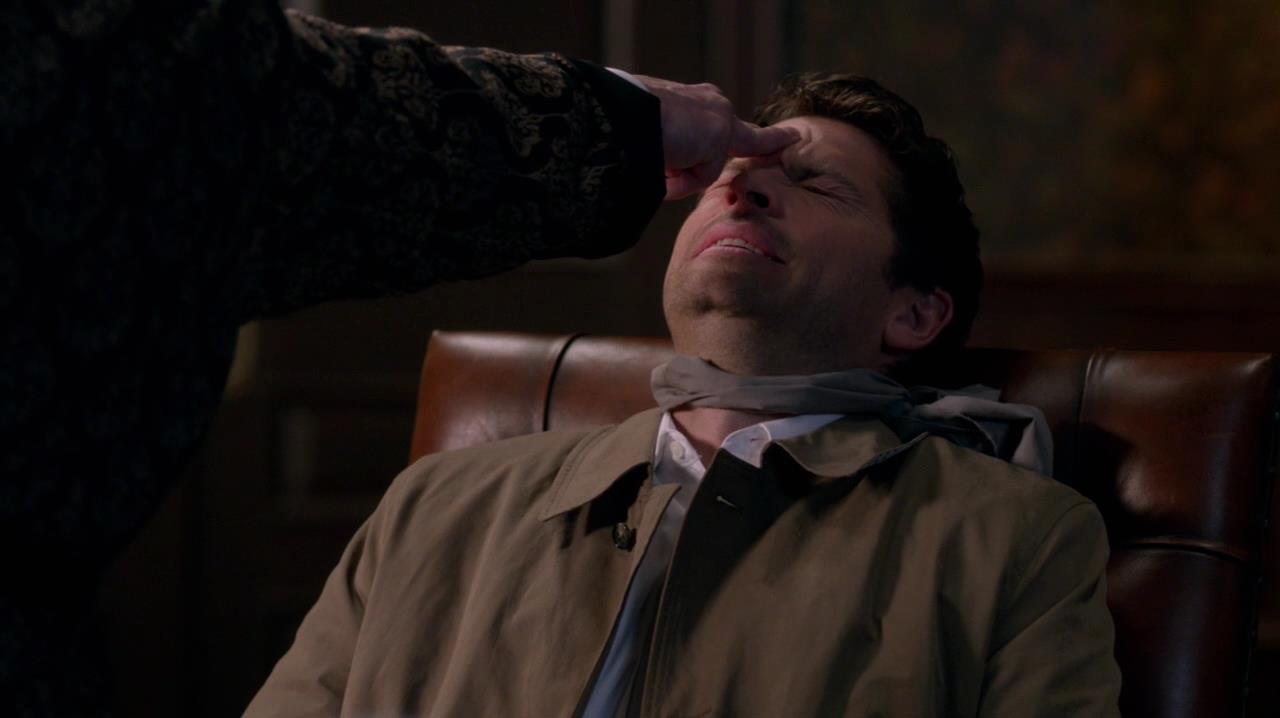
Robbie: I didn’t want to retcon him, per se. Castiel is a wonderful character and has been written so well and obviously performed so well because Misha’s done, I don’t know, fifty versions of Cas over the years. But it felt, in that moment, that because Metatron is referencing a lot of stories, and I think he has the line in the episode something like, “Didn’t you ever pick up a book? What have you been doing for all these millennia? Can’t you just touch these books and know them?” It was, I think, me channeling my own frustration of wanting him to understand a reference once in a while. So I think it was Metatron, as me, just saying, “Boom! You’ve got pop culture knowledge.”
It didn’t really seem to last. He still seems to forget things and not know. Some people were like, “How come he knows this and not that?” Well, it’s like he doesn’t know what Hot Topic is because it wasn’t in a book that Metatron had read. That was sort of my rationale. But really, Metatron was somebody who likes shorthand and he loves story, and to not be able to have that shorthand was frustrating. It’s like when you learn another language and you’re talking to somebody. It can be really hard to speak your mind because you don’t know all the idioms of that language. It was almost like he was speaking a different language and he was like, “I’m so sick to death of this. Now you know what a Death Star is. Now you know what Star Wars is. The end. Go.” So, yeah, it was just for fun. It came up as a possibility when we were breaking the episode, and Bob and Jeremy thought it was fun so we did it.
Nightsky: Oh, a lot of it stuck.
Robbie: Oh that’s good.
Nightsky: Every once in a while, he’ll come up with something that’s really funny. It’s usually a great line too.
Robbie: Oh good.
Nightsky: That makes sense because you reference pop culture often, even when we’re talking.
Robbie: Yeah, it was probably me as Metatron.
Nightsky: Metatron burned one of the Supernatural novels [in “Meta Fiction” 9.18].
Robbie: Yes, yes. Controversial.
Nightsky: Yes! I haven’t seen any interviews where you may have answered this before, but was that the showrunners’ idea to burn the meta, i.e. “Burn the canon that’s come before. We’re writing our own book now” or was that just pure Metatron?
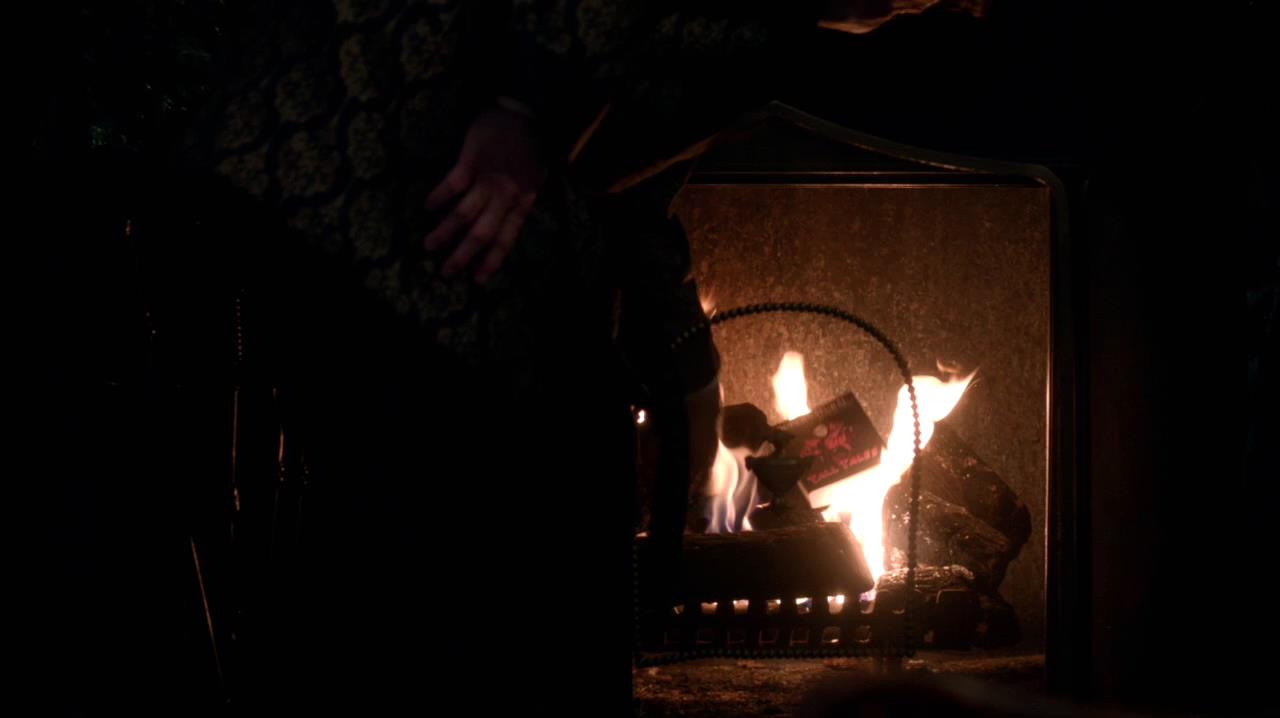
Robbie: I think that’s an interesting interpretation. I think for me personally, it was more, I was looking for two pieces of shorthand. Number one, I wanted the audience to really hate him. So for him to burn the books was a pretty clear shortcut to get there. But also, I think, it was him trying to assert himself as the author of the story. It was him saying, “Hey, I’m going to be writing the narrative from this moment forward.” So it was more of that and less a commentary on the story the book had told. So again, it was more from Metatron’s point of view, not me making a comment on the text of the show, if that makes sense. I’m not saying that interpretation isn’t valid and interesting though. It’s super cool.
Nightsky: The Metatron interpretation fit very well with the story.
Robbie: Yeah.
Nightsky: I would say that the meta interpretation was the one that took off. Really. As if the [showrunners] wanted to say, “Let’s start where we want to start.”
Robbie: Yeah, yeah. That’s probably better.
Nightsky: “Don’t Call Me Shurley.” You are really the one that fleshed out God as a character—Chuck as a character.
Robbie: I mean, yes and no. I mean, I don’t think I added anything that wasn’t, I don’t think, inherent to what had come before. I don’t know. I’m sorry, ask your question.
Nightsky: No, that is a lot of the question! Did the showrunners say, “It’s about time we got to meet this guy? Go ahead and run with it” or was it just part of the story you pitched?

Robbie: I wasn’t expecting to write that episode. I had written “Safe House” and I thought, “That was my third episode” because I’d write three of four and I figured I was done, batting-order-wise, but Bob and Jeremy came in and said, “Hey, we need you to write the twentieth episode,” I think it was?
Nightsky: Yeah, 11:20.
Robbie: 11:20, wow. Then they were like, “this is the episode where we finally confirm that Chuck was God.” And I was like, “Hey, I think we have some explaining to do. We have some things to kind of figure out. Can we do something that’s a little, uh, different? A little weird?” So I had this idea about, this kind of – half was a play and half was the rest of the stuff with the boys. Really, it’s two-thirds of a play, to kind of explain where Chuck had been, how Chuck worked in the series previous to that. So I went back and I watched all of Rob’s episodes and then at that point I think we knew that Rob was going to be in the episode. He and I exchanged a couple emails as well. I didn’t want to write a character that didn’t seem like Chuck. I didn’t want to write, like, God. I mean, that’s way too intimidating.
Nightsky: Oh, yeah!
Robbie: You know, I didn’t want to write a guy coming down from a mountain with stone tablets. I wanted him to be Chuck…
Nightsky: Approachable.
Robbie: …for two reasons. Number one, I didn’t want the audience to not recognize him. Also, number two, he has a turn in that episode where he’s very scary, and he’s very wrathful, which, no matter what your beliefs are or if you’re Old or New Testament, there’s some wrathful God in there. So he needed to be able to be scary. In order for that to happen, we needed the contrast. So if he just showed up, “I’m God” kaboom and lightning bolts, there’s nowhere for him to go. So I just wanted to slow the story down and just, “Can we unpack some of this?” I think I used Amadeus as an example of…
Nightsky: Music is the language of God.
Robbie: Music is the language of God, but also, that Metatron was Salieri to God’s Amadeus. Like, he couldn’t reach it, he couldn’t get there. Part of it was jealousy and part of it was he wanted to just be seen by God, you know, like I think a lot of people do. So yeah, I just wanted to slow the story down and really unpack some of the stuff, so that, once God did appear, it would feel like it was part of a larger story. That moment would really land with Sam and Dean, of them realizing, “Holy sh*t! This guy who has been writing our story is God.” Um, uh, capital “G” I guess.
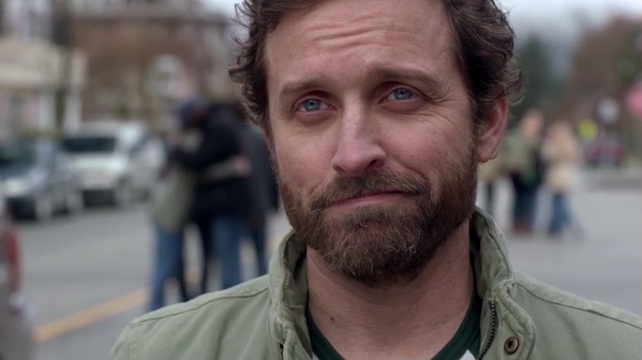
Because you know, Supernatural has played fast and loose with who God is, and what kind of God, and the Judeo-Christian God. All different kinds of stuff. We’ve had other gods on the show. So it was complicated.
I was really lucky to work with Bob and Jeremy who were like, “Yeah, you know what? Let’s slow it down.” So we got to tell a story that was… you could’ve begun that episode with, “We should talk.” You know, you could’ve. But I was really lucky that they were like, “Let’s unpack it. Let’s actually figure out who God was as a character, so that when he makes certain decisions moving forward, the stakes are clear and, most importantly, Sam and Dean’s position in all this is very clear.” So it’s another one that I’m grateful to Bob and Jeremy for diving into the character, and breaking that down, and letting me take a weird swing because it’s a weird episode structurally. It’s basically a little two-act play, and then suddenly it’s very much the Sam-and-Dean story. Then the Samulet is there and all that good stuff, but for that stuff to really play and land, my feeling was that we really wanted to platform it properly. So, yeah, that was kind of the nature of it.
Nightsky: When you finished that script, knowing Curtis, knowing Rob, did you look at that and say, “This is one of those special ones. This is a good script.”?
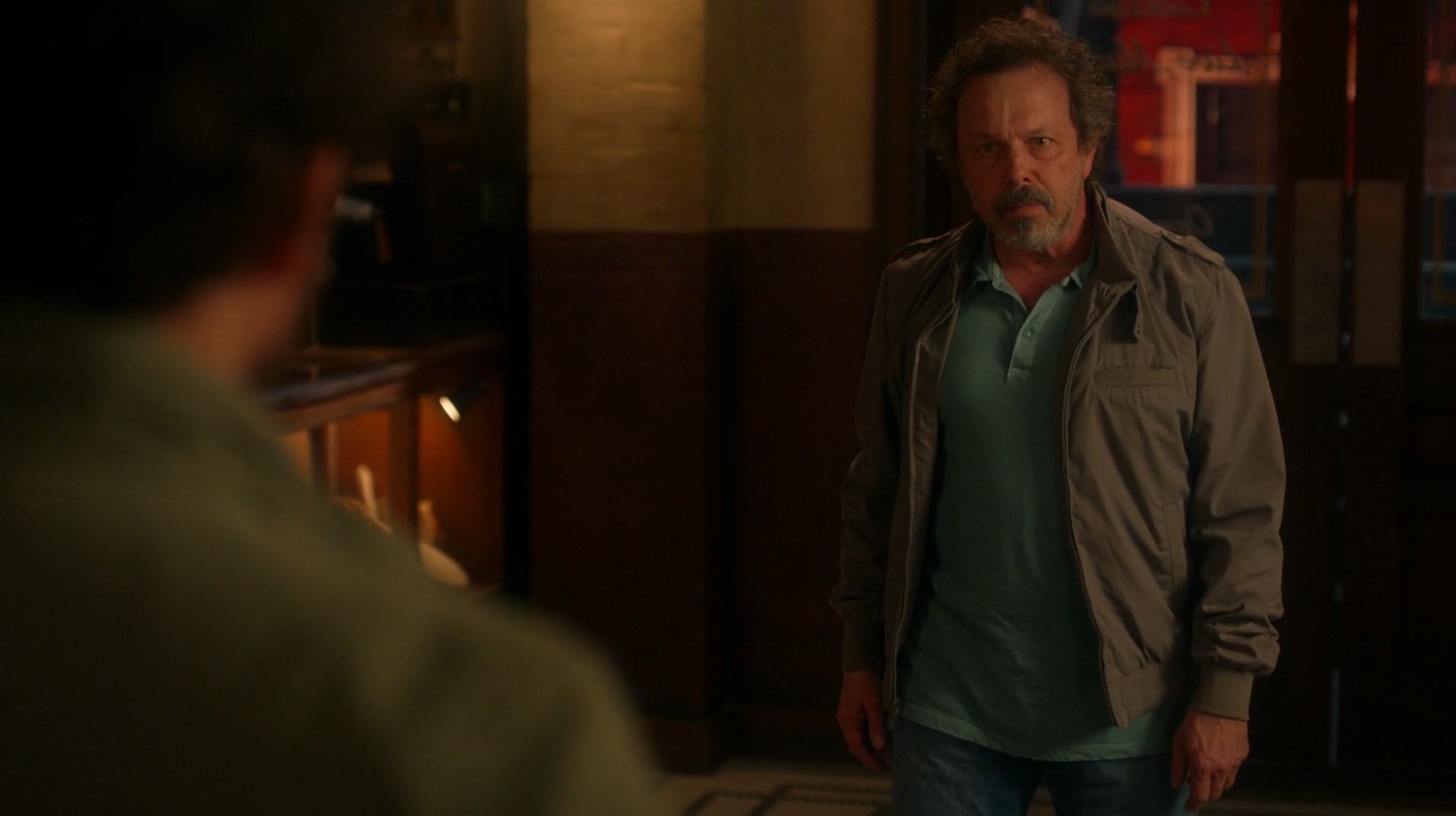
Robbie: I don’t know. I was always terrified, you know? I knew that I had a great director and I knew I had a great cast. I had talked to Curtis and Rob throughout the whole process. In fact, both of them gave me moments in the script that were invaluable. The whole, “Which biography you going to write?” came from a conversation between me and Curtis, who I didn’t know was writing his own autobiography at the time, which is a whole other, extra layer. Then Rob and I talked a ton, because I had questions about Chuck and his portrayal of Chuck. We had hinted at some of this in the 200th episode, because when he shows up and he’s like, “Not bad,” he was back but we hadn’t necessarily said who he was. I wanted to make sure that it lined up with his portrayal. So he had just really wonderful insight into the character, into the voice of the character. It had been written by several other people, but he had a lot to say, and he was really helpful. So I don’t know – it’s one of those ones where, like every script I handed in, I was like, “I hope this doesn’t suck.” You know? I knew on every single episode that I always had a great director and I had a great cast and crew, so it was always a question of, did I meet the level of cast, director and crew. You know? If I did, that’s not up to me [to judge], but I did know that I had a moment that I really wanted to see on the show with the boys in the second half with the Samulet. I just wanted to see that as a fan. So I knew that I had high hopes for that moment working, but I also knew that with Curtis and Rob, they’re such great actors, I knew I was in good hands. We don’t have a lot of lead time and it was like a play. I told them, “Guys, there’s a lot of words in here. There’s a lot of scenes.” In fact, we cut one, but you know, they’re both theater guys.
Nightsky: Two monologues going on there.
Robbie: Yeah. The longest scenes I ever wrote for an episode of Supernatural are in that episode, but they’re theater-trained guys. They showed up and killed it.
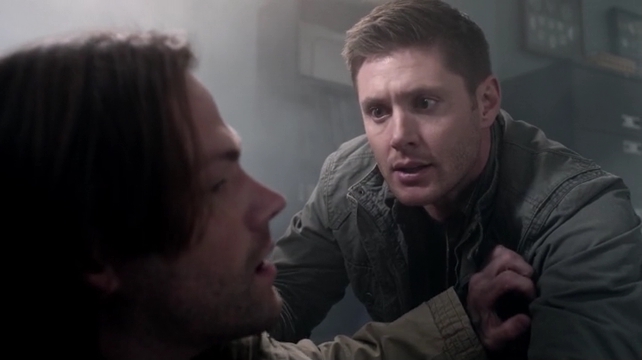
It’s also not so easy to do what Jared and Jensen do in that episode because they’ve got to show up for their part in the midst of a really large drama that’s going on and then they have to play this history that’s in the script but not spoken aloud [referring to the climactic scene where everyone is dying, including Sam, and the Samulet is revealed]. It’s scripted what happened. I was like, “I could write dialogue here but it’s going to suck. Play it off their looks [facial expressions]. They’re going to play the history of, at that point, eleven years of the show. Let’s let them have this, between the two of them.”
Nightsky: Give it to the actor and let them take it.
Robbie: Yeah. Again, if you have Jared and Jensen, give it to them. They killed it. They killed it. So I knew that I had good actors and a great director, and I just hoped the rest of it worked.
Nightsky: Well actually, you may have just answered the last question I have on characters. When you know who’s going to play it, like Jared or Jensen or Curtis or Rob or whoever it might be…
Robbie: It makes a world of difference.
Nightsky: How much do you write to them versus just cross your fingers?
Robbie: It makes a world of difference. An example of that is Charlie was written before we cast Felicia. She had a lot of scenes, she had a lot of dialogue, and she needed to be really likable and really funny right from the beginning, so I was pretty nervous. But then Sera got Felicia for the part and she sent me an email “Felicia Day cast as Charlie.” I was like, “Oh thank God.” Then we actually went back into the script and opened it up and added in more stuff, because we knew her work and we knew we could push certain scenes and we also knew that she could hold her own with the boys. I don’t think we knew at the time that she would have such great chemistry with them, but once we did see her have such great chemistry with the guys, it was really easy to write for her afterwards because I was like, “Oh, I know how she’s going to play this moment.” Then she and I became friends and we would talk, again much like with Rob and with Tim or Shoshannah or whomever. Being able to have that dialogue with the actor is priceless. It’s priceless. So yeah, it’s much easier to know who you’re writing for, but it’s not always what you get to have timing-wise.
Reviving Plotlines
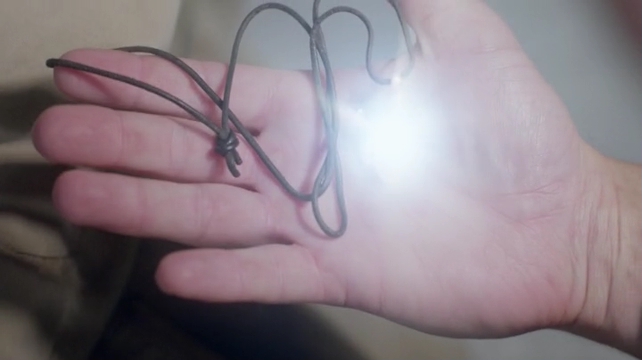
Nightsky: You mentioned the Samulet, which fell into a plotline black hole – it was brought up then never heard from again, lost and seemingly forgotten!
Robbie: Sure.
Nightsky: There wasn’t anything wrong with it, it was just left open. Besides bringing back the Samulet, you addressed other “plot holes.” Was that something you wanted personally to do? For example, you remembered Adam [in the 200th episode, “Fan Fiction”].
Robbie: I did. I did.
Nightsky: Was that something that meant something to you? Had you wanted to do that?
Robbie: I really wanted the 200th episode to be – and this was the intention – a love letter to the fans of the show and the people who supported it for ten years. If anyone was going to be directly made fun of, I wanted it to be us – the writers. [Adam being forgotten] was always something that’s bothered me. I think years ago the Supernatural [Twitter] account was like, “It’s National Siblings Day” and they showed Sam and Dean. I put a gif of Adam with, “Bro” because I’ve always wanted to see what happened to that character and to unpack whatever’s left of his story.

So I just thought it was a moment to [do that] because the way that Chris [Lennertz] and Jay [Gruska] had worked out all the songs for that episode, it ended up being surprisingly emotional. And the way “Carry On” was built was so lovely. It was way more emotional than I think I had anticipated. So it was a way to kind of undercut some of the intensity of that moment. Because it’s this really lovely rendition [of “Carry On], and they’re like, “Wait, who’s that?” “Oh, that’s Adam. He’s still trapped in Hell.” It was just a way to kind of – it was a little bit of a kick in our pants, the writers. But I still hope. There’s still however many episodes left. Hopefully they’ll bring Adam back. It’d be great to see him again.
Nightsky: Then confirming that Chuck was God. That happened on your watch too [also in “Fan Fiction”].
Robbie: Yeah.
Nightsky: You said that’s what the showrunners wanted to do.
Robbie: Yeah, that was Bob and Jeremy from before we all sat down. Each season they’d come in with the main points locked down, not necessarily exactly when they’d happen, but the tentpoles of the season. The showrunners will say, in this case it was Bob and Jeremy, “Here’s where we’re going. Here’s the pivot point and here’s the ending, and in the ending, God’s going to come back.” I just remember thinking, “Oh, sh*t. That’s going to be a hard episode. I hope I don’t have to write that one.” And then, uh, cut to, I got to write that one.
Nightsky: Did you have a list of the things that were open-ended that you wanted to try to close out?
Robbie: Oh, yeah! Yeah. But we all did. We all did, all of us. It was never that we were ignoring the thing. It was more of, could you find the story for it? Could you find the place where it organically happened; it wasn’t just internal fan service? It had to come organically. That’s why with the Samulet, it’s kind of at least teed up a little bit [with] Sam’s little keepsake box. I was like, “He did keep some stuff over the years and maybe when he was gone that was something that Dean had as well and, you know, didn’t look in, or was it too emotional to look in, or whatever?” It was just kind of slowly seeding in little things. But we would all do that stuff, and it was never – I’m not making excuses. We’re human, we make mistakes – but it was never a question of, “No, you can’t do that.” It was always a question of, “What’s the story to bring it back?”
Nightsky: Making it fit in properly.
Robbie: Yeah. So, yeah, there were certain things that were on my board that were like, “Oh, I’m going to get this one by the goalie,” and I never did. Like, Adam was one of those. I must’ve pitched, I don’t know, three or four Adam stories, or ways to get him in. It wasn’t that nobody wanted to do it, it was just, it didn’t, my version—
Nightsky: It didn’t flow with the story.
Robbie: Yeah. It didn’t work.
Nightsky: Is that in that notebook that you’re going to will to someone?
Robbie: {laughing} Yeah, somewhere!
Part 4 concludes this exclusive interview with Robbie sharing the story behind every piece of memorable “Music” (his final signature element) in his episodes, more information on the Supernatural writing process, and looking at what Robbie might do next.
Until then, please add your comments and questions below!
References
B.G.’s Canteen was the setting of Metatron’s conversation with Chuck – “Don’t Call Me Shurley” 11.20
“Don’t Call Me Shurley” quotes confirmed with Springfield! Springfield!:
“Details are what make a story great.” – Metatron’s advise to Chuck on writing
An immense thank you to Chelsea for the transcription of this interview!
Miscellaneous show details researched on Supernatural Wiki
Learn more about Robbie Thompson and his tips on writing:
*Robbie was the keynote speaker at a 2015 DePaul University conference in Chicago, Il. During a multi-hour presentation, Robbie gave what amounted to a “master class” in writing. Alice Jester and Nightsky reported on his lecture: DePaul Part 1, Part 2, Part 3
In 2016, Robbie answered fans’ questions about the show, his episodes and Supernatural’s characters during an hour-long panel at Chicago’s C2E2 convention. Nightsky was there, and published a complete, illustrated transcript of the panel: C2E2 2016 Part 1, and Part 2
Also in 2016, Percysowner created a short summary of Robbie’s early years at Marvel. Included is a video interview of him on his Silk and related Marvel work.
In 2013, Farawayeyes compiled a comprehensive profile of Robbie’s television and graphic arts writing career to that point. Included is a short interview with Robbie about his first few episodes on Supernatural. Robbie Thompson Profile: Part 1, Part 2, Part 3



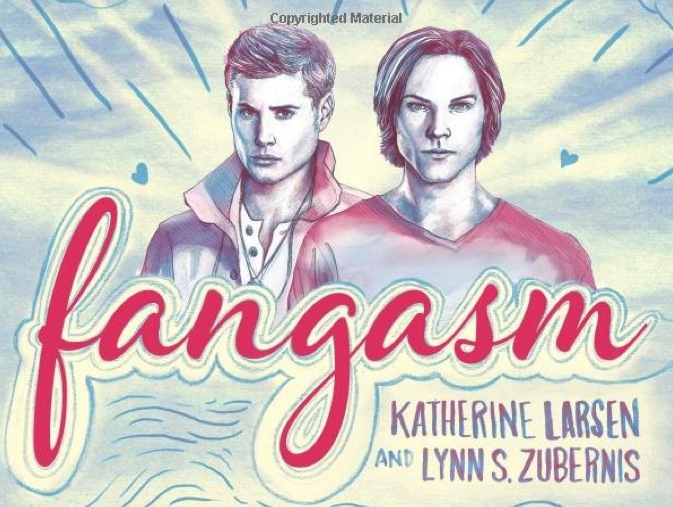
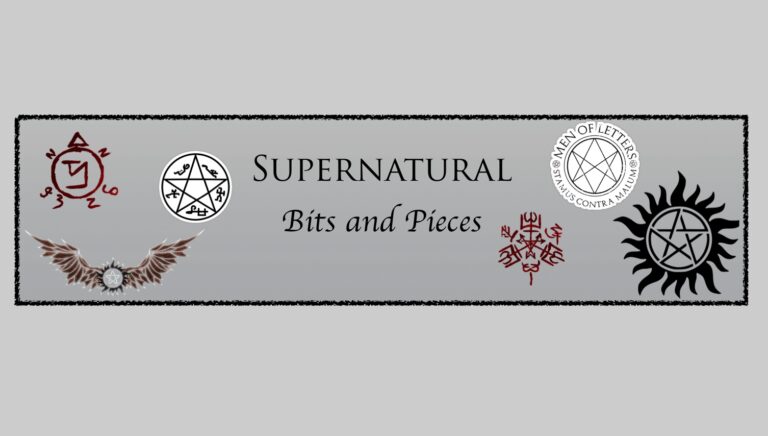
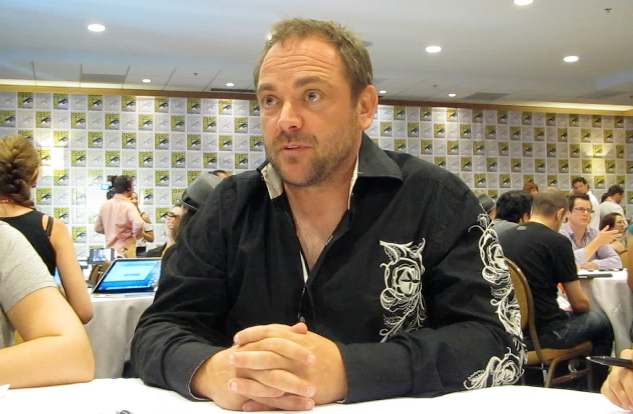
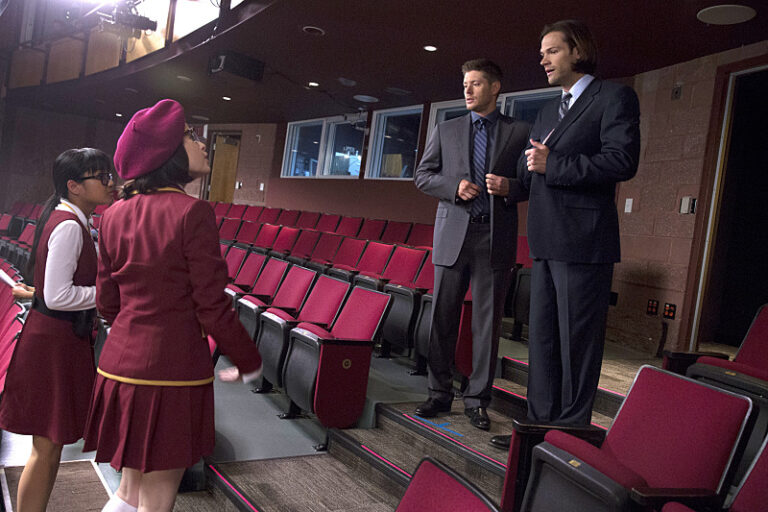
Leave a Reply